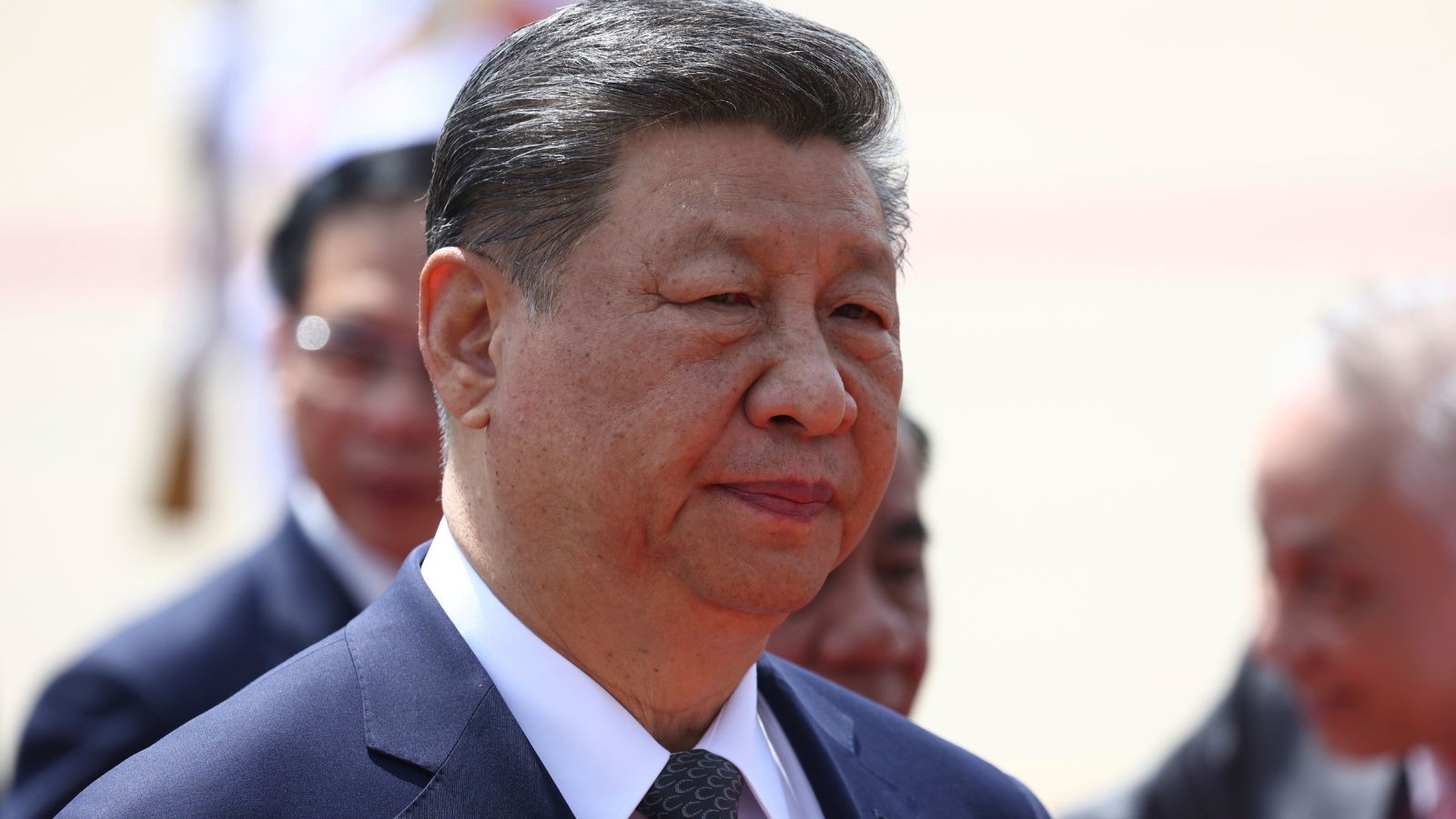Stay updated with the latest - Click here to follow us on Instagram
Xi Jinping unveils economic plan to counter US tariffs, signals shift in trade strategy
Xi called for strengthening 'bottom-line thinking' and 'fully preparing emergency plans' to support economic recovery, according to a readout published China's official news agency.
 China reportedly retains significant leverage through its dominance of the rare earths market—accounting for about 61% of global production and 92% of refining. (AP Photo)
China reportedly retains significant leverage through its dominance of the rare earths market—accounting for about 61% of global production and 92% of refining. (AP Photo)Chinese President Xi Jinping has announced new measures to shore up China’s economy amid ongoing challenges posed by the US trade war, a struggling housing sector, and high youth unemployment. At a Friday meeting of the politburo, Xi called for strengthening “bottom-line thinking” and “fully preparing emergency plans” to support economic recovery, according to a readout published by Xinhua, China’s official news agency.
The statement acknowledged a “positive trend” in 2025 with growing social confidence but warned that “the impact of external shocks has increased.”
In a veiled reference to US trade actions, the politburo vowed to “actively uphold multilateralism and oppose unilateral bullying practices.”
Trump claims contact with Xi as tariff exemptions discussed
Meanwhile, US President Donald Trump claimed in an interview with Time magazine that Xi had reached out to him about tariffs. “He’s called,” Trump said. “And I don’t think that’s a sign of weakness on his behalf.” However, China’s foreign affairs ministry refuted these claims, with spokesperson Guo Jiakun saying, “None of that is true,” according to The Guardian.
Amid these conflicting statements, reports from Bloomberg and Reuters suggested that China was considering tariff exemptions for certain US goods, including semiconductors, medical equipment, and industrial chemicals like ethane. A Shenzhen-based supplier indicated that eight semiconductor products had already been exempted from the 125% duties.
Michael Hart, head of the American Chamber of Commerce in China, confirmed that Chinese authorities had been surveying businesses about indispensable US imports, calling the move a “positive early sign” toward easing tensions.
China shifts focus
The politburo readout outlined a series of initiatives aimed at boosting domestic demand, protecting businesses, and ensuring economic stability. Plans include raising unemployment insurance payouts, increasing low and middle incomes, supporting the service sector, and encouraging consumption.
“We should take multiple measures to help enterprises in difficulties,” the statement said. The politburo also stressed the need for proactive macroeconomic policies, a new real estate development model, and urban renewal programs.
Wen-ti Sung, a non-resident fellow at the Atlantic Council’s Global China Hub, told The Guardian that Beijing appears prepared for a prolonged trade battle. “[This] hints that China will be digging into the trenches and is preparing for a long trade fight with Trump,” he said, adding that China was “doubling down on boosting domestic demand.”
Lessons from the past
According to BBC , China has been investing heavily in homegrown industries, including AI, renewables, and chip manufacturing, since Trump’s first wave of tariffs in 2018. This strategic shift aims to reduce dependence on US markets and technology.
Despite the pain from tariffs, China’s massive domestic market gives it an advantage. As Mary Lovely of the Peterson Institute told BBC Newshour, China’s leadership “may very well be willing to endure the pain to avoid capitulating to what they believe is US aggression.”
Trade diversification has also been a key strategy. Southeast Asia has replaced US as China’s largest export market, and China now boasts a $1 trillion trade surplus, reported BBC.
Rare earths and bond markets: China’s strategic leverage
China retains significant leverage through its dominance of the rare earths market—accounting for about 61% of global production and 92% of refining, according to the International Energy Agency. Restrictions on exports of critical minerals, such as antimony and select rare earths essential for AI and defense industries, have already been implemented.
Additionally, China’s holdings of $700 billion in US Treasury bonds could offer limited leverage, though experts cited by BBC warn that aggressive moves could also destabilize China’s own financial system.
Thomas Kruemmer, director of Ginger International Trade and Investment, told BBC that restricting rare earths could have a substantial impact on the US defense industry.
(With inputs from The Guardian, BBC, Reuters, Bloomberg)
- 01
- 02
- 03
- 04
- 05































